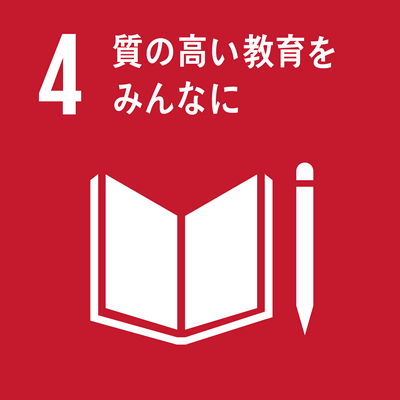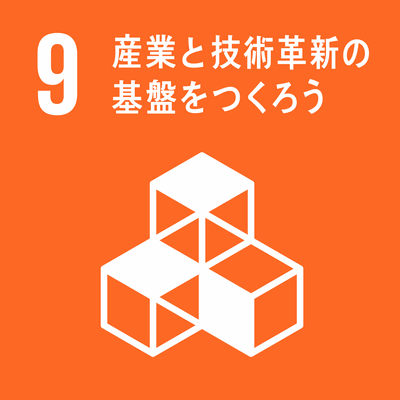シラバス表示
シラバスの詳細な内容を表示します。
→ 閉じる(シラバスの一覧にもどる)
科目の基本情報
| 開講年度 | 2024 年度 | |
|---|---|---|
| 開講区分 | 工学研究科(博士前期課程)電気電子工学専攻 | |
| 領域 | ||
| 受講対象学生 |
大学院(修士課程・博士前期課程・専門職学位課程) : 2年次 |
|
| 選択・必修 | ||
| 授業科目名 | 電気電子工学特別研究Ⅲ、Ⅳ | |
| でんきでんしこうがくとくべつけんきゅうさん、よん | ||
| Thesis Research in Electrical and Electronic Engineering Ⅲ, Ⅳ | ||
| 単位数 | 各2 単位 | |
| ナンバリングコード | EN-ELEC-5
|
|
| 開放科目 | 非開放科目 | |
| 開講学期 |
通年 |
|
| 開講時間 |
|
|
| 授業形態 |
対面授業 * 状況により変更される可能性があるので定期的に確認して下さい
「オンライン授業」・・・オンライン会議ツール等を利用して実施する同時双方向型の授業 |
|
| 開講場所 | ||
| 担当教員 | 各教員(工学研究科電気電子工学専攻) | |
| SDGsの目標 |
|
|
| 連絡事項 | * 状況により変更される可能性があるので定期的に確認して下さい |
|
学修の目的と方法
| 授業の概要 | 各教員の指導の下に、最先端の研究を2年間行い、修士学位論文としてまとめるための研究を行う。 (Course description/outline) Conduct one's own research on the state-of-the-art technology for two years under supervision of one's research advisor pursuing one's master's thesis. |
|---|---|
| 学修の目的 | |
| 学修の到達目標 | 電気電子工学における各分野の最先端の研究に触れ、実際に研究開発することにより感じる力、考える力、生きる力を育成する。 (Achievements) Gain one's strength to feel, consider, and survive by coming in touch with the state-of-the-art researches in the field of electric and electronic engineering and by conducting one's own researches. |
| ディプロマ・ポリシー |
|
| 成績評価方法と基準 | 研究実施態度、修士論文発表、修士論文に基づいて評価する。 (Grading policies and criteria) Grades will be made based on attitude on daily research activities, presentation in one's master's thesis defence, and one's master's thesis. |
| 授業の方法 | 演習 実験 実習 |
| 授業の特徴 | |
| 授業アンケート結果を受けての改善点 | |
| 教科書 | 各教員がその都度指示する。 (Textbooks) Will be given by research advisors. |
| 参考書 | |
| オフィスアワー | 各教員が指示する。 (Office hour) Depends on one's research advisor. |
| 受講要件 | 危険が伴う実験や作業を行う場合には、必ず学生教育研究災害傷害保険には必ず加入すること (Prerequisites) Signing up for insurance is required in case one will conduct dangerous experiments and operations. |
| 予め履修が望ましい科目 | |
| 発展科目 | |
| その他 |
Ⅲが前期、Ⅳが後期 Ⅲ and Ⅳ are for the first and second semester, respectively. |
授業計画
| MoodleのコースURL |
|---|
| キーワード | 研究、能動的学習、討論、発表 |
|---|---|
| Key Word(s) | Study, Active learning, Discussion, Presentation |
| 学修内容 | 次の研究分野に分かれて研究する。 Ⅰ.電機システム Ⅱ.制御システム Ⅲ.エネルギーシステム Ⅳ.情報処理 Ⅴ.通信工学 Ⅵ.計算機工学 Ⅶ.オプトエレクトロニクス Ⅷ.有機エレクトロニクス Ⅸ.量子エレクトロニクス Ⅹ.高周波フォトニクス Ⅺ.ナノデザイン Ⅻ.物性物理学 ⅩⅢ.磁性体工学 (Course contents) Students will join one of the following research groups. Ⅰ.Electro mechanical systems Ⅱ.Control systems Ⅲ.Energy systems Ⅳ.Information processing Ⅴ.Communications engineering Ⅵ.Computer engineering Ⅶ.Optoelectronics Ⅷ.Organic Electronics Ⅸ.Quantum electronics X.High-Frequencies Photonics Ⅺ.Nano design Ⅻ.Solid state physics ⅩⅢ.Magnet materials engineering |
| 事前・事後学修の内容 | |
| 事前学修の時間: 事後学修の時間: |

